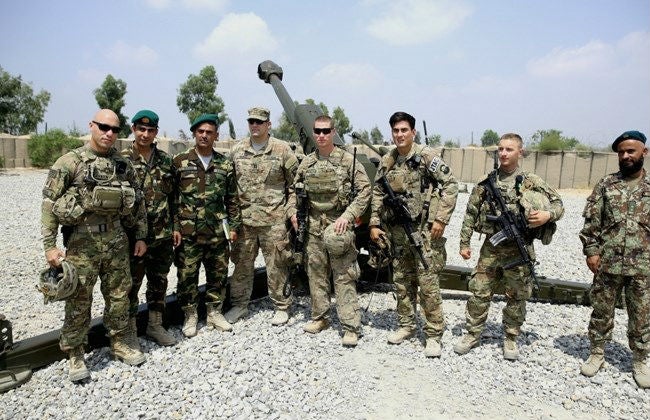How Barack Obama completely failed to extricate America from George Bush's 'war on terror'
Through a combination of bad judgement and bad luck, Mr Obama has failed to achieve what he set out to do

Barack Obama came to office promising to be different.
He was opposed to the Iraq war - indeed, one of the things that distinguished him from Hillary Clinton was that he had voted against it - and he was keen to extricate the United States from George Bush’s war on terror.
Seven years on, things look very different. As a result of a combination of bad luck, intentional policies and questionable judgement, the US appears more involved than ever in conflicts around the world.
Afghanistan:
It was always likely that the US would retain a number of troops in Afghanistan, rather than withdraw completely. At least 1,000 soldiers would have stayed on to protect the US Embassy and help advise Afghans forces. But now Mr Obama has declared 5,500 troops will remain there until at least 2017. The decision as taken amid concerns about the resurgence of the Taliban the security vacuum that still exists in large parts of the country. At least 2,200 US soldiers have lost their lives there.
CIA drone programme:
Under Mr Obama, the US has greatly expanded its use of unmanned drones in places including Afghanistan, Pakistan, Yemen and Somalia. There may be other countries where drones have or are being used. According to the Bureau of Investigative Journalism, the US has carried out 400 drone strikes inside the tribal areas of Pakistan - the vast majority since 2009. While a number of high-profile al-Qaeda figures have been killed, so have hundreds of civilians. Mr Obama has been criticised for a lack of transparency.
Libya:
While the operation to support rebels that ousted Libyan leader Muammar Gaddafii was led by France, the UK and Italy, the US provided air and logistical support. Four years on, the country remains rocked by tribal violence. In September 2012, Islamic militants attacked the US compound in Benghazi, killing four Americans, among them US Ambassador Christopher Stevens.
Guantanamo Bay:
Early in his presidency Mr Obama vowed to close the controversial base located on the top of Cuba that had been established by George Bush as a place to incarcerate suspects captured in the aftermath of the 2001 US and UK invasion of Afghanistan. He ran in to repeated opposition from Republicans, opposed to his plan to try suspects in the US civilian federal justice. A number of prisoners considered to be of reduced risk, have been sent to either their own countries or else a third location. However,s there are still 116 detainees still at the prison facility.
Isis:
Since the summer of 2014, the US has been conducting airstrikes against Iris targets in Iraq. Then in September 2014, it was announced the strikes would be extended to Isis fighters in neighbouring Syria. The US has also conducted a series of special forces operations in both countries. It has also been arming and supporting so-called moderate Syrian rebels to fight both Isis and the forces of President Basher al-Assad.
Cameroon:
This week, President Obama announced he was dispatching 300 US troops to Cameroon to help in the fight against the Islamist rebels of Boko Haram.
Subscribe to Independent Premium to bookmark this article
Want to bookmark your favourite articles and stories to read or reference later? Start your Independent Premium subscription today.

Join our commenting forum
Join thought-provoking conversations, follow other Independent readers and see their replies